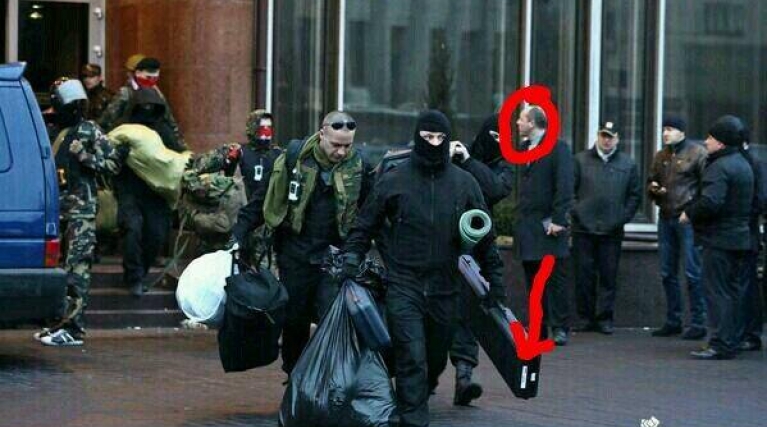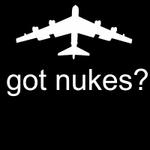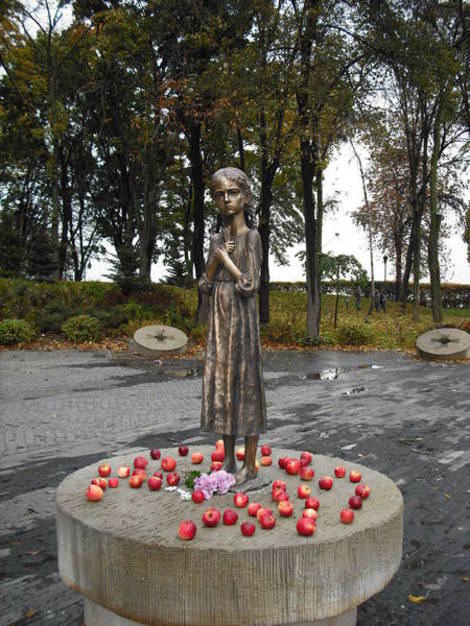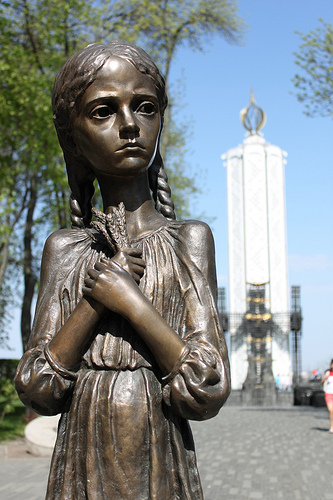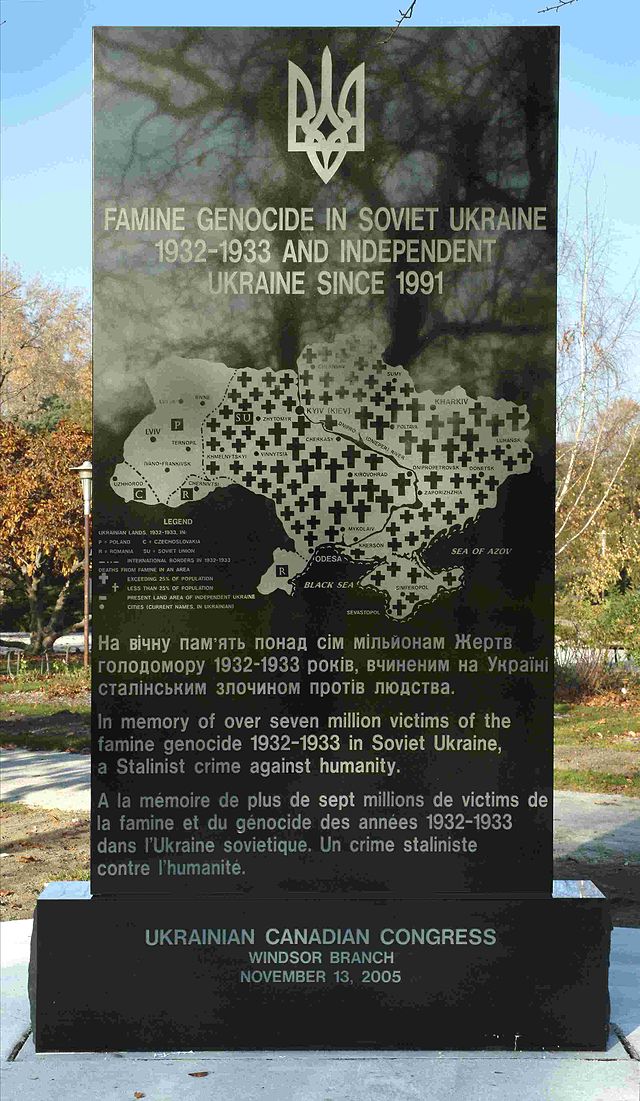@mayday  mayday schrieb:Klar ist, es gab Gewalt auf beiden Seiten
mayday schrieb:Klar ist, es gab Gewalt auf beiden Seiten
Die Getöteten hatten damit aber nichts zu tun.
 mayday schrieb:Noch en Artikellink vergessen um den es es eigentlich gehen sollte..xD hier -->
mayday schrieb:Noch en Artikellink vergessen um den es es eigentlich gehen sollte..xD hier -->
ja, das wirft einige Fragen auf.
Es gibt eine offizielle russische Darstellung vom Außenministerium der RF. Ich finde sie bittet reichlich Stoff für Diskussion.
May 2, 2014. A mass killing of Ukrainian federalisation supporters by militants
of Ukrainian ultra-nationalist and neo-Nazi groups took place. In the middle of the
day over a thousand radical football fans that had earlier been brought to Odessa,
joined the armed ‘Right Sector’ and ‘Maidan Self-Defence’ in the march through
the city centre under the slogan “For a united Ukraine”. Participants of the march
were also chanting “Death to enemies” and “Knife the Moskals”. During the march
numerous fights and gun fights broke out, instigated by unidentified persons
wearing red sleeve badges. The first victims were wounded and killed.
By 7pm the radicals reached the ‘Kulikovo pole’ square where they destroyed
and set fire to the tent encampment of the ‘Euromaidan’ opponents who were
gathering signatures for the referendum on federalisation of Ukraine and granting
Russian language an official language status. During the fight, THE attackers used
gasoline bombs and pavement blocks; gunshots could be heard. The federalisation supporters tried to take refuge in the Trades Union building, that was swiftly locked
up and set on fire by the Ukrainian nationalists.
First, the main entrance and then the first floor lobby were set on fire. The fire
spread to several floors, which was facilitated by preventing the fire brigades that
had arrived into the square from putting it out. As stated by the Head of the Regional
Department of the State Service for Emergency Situations of Ukraine, Volodymyr
Bodelan, the firefighters arrived at the square in a timely manner; but the crowds at
the Trades Union building would not let the vehicles approach the burning building.
Some Euromaidan supporters interfered with the firefighting operation in the
Trades Union building. They prevented the federalisation supporters from escaping
by shooting at the windows and fire escapes, and so forcing the barricaded people
to jump out of the windows. Many fell to their deaths. Those who managed to
escape were ruthlessly beaten by the crazed nationalists to the strains of the
Ukrainian national anthem and screams of ‘Hail to Ukraine’. The burnt and beaten
Maidan opponents were promptly arrested for arson by the police officers who’d
been previously been standing aside.
According to official sources, 46 people (among them 8 women) died. The oldest
was 70, the youngest — only 17 years old. Most were burned alive or died of carbon
monoxide poisoning. 247 people sought medical help, 99 of whom were admitted
to hospital. Another 48 people were missing as of May 5th.
In the meantime, O. Tzarev, a member of the Ukrainian parliament and a leader
of ‘South-East’ movement, together with a number of Ukrainian politicians,
claimed that the authorities were intentionally under-reporting the number of
victims, concerned about possible public unrest. Based on the information from
undisclosed sources in law enforcement and forensics, local media reported that
the actual death toll was between 72 and 116 people. Among those killed was a
local council member for the Regional party, V. Markin, who died in hospital as a
result of the injuries he suffered after being beaten by ‘Right sector’ militants; and
an Odessa poet, V. Negaturov, who died in an intensive care unit from the wounds
he suffered at the Trades Union building).
weitere Ereignisse im Zeitraum vom 2. Mai bis 5. Juni im Spoiler
Spoiler
May 2, 2014. The Russian Ministry of Foreign Affairs categorically condemned the
tragic events, making a point that it serves ‘as additional evidence of the criminal
lack of responsibility in the Kiev authorities, who are conniving with the national
radicals, including the Right Sector, who brazenly organise a physical terror
campaign against those who support federalisation and real constitutional changes
in the Ukrainian community.’
May 3, 2014. The UN Secretary General Ban Ki-Moon demanded a conclusive
investigation into the circumstances of what happened in Odessa on May 2nd.
May 3, 2014. The tragic events in Odessa were enthusiastically welcomed by
the Ukrainian nationalist community who referred to them on their websites as a
‘triumph of the Ukrainian spirit’ and those who had burnt alive in the Trades Union
building were referred to as ‘Colorado beetles’ and ‘Shish-kebab’.
What’s more, in her comment on the mass killing of Kiev government opponents by
the ’Euromaidan’ militants, Iryna Farion, a Ukrainian parliament (Rada) deputy for
the Svoboda party wrote the following: ‘Bravo, Odessa! You showed real Ukrainian
spirit. You are the birthplace of the great nationalists Ivan and Yuri Leap. Let demons
burn in hell! Football fans are the top rebels. Bravo!’
Another parliament deputy, and candidate for mayor of Kiev, L. Orobets of the
Batkivshchyna party commented on the events in Odessa on her Facebook page
saying: ‘This day will go down in history. Despite having been betrayed at least
partly by the militia, the Odessans stood for Odessa and proved to all that Odessa
is part of Ukraine. This victory was secured at the expense of the patriots’ lives.
Colorado beetles mobs were eradicated. Aggressors that struck first were met with
a resounding rebuff’.
Ukrainian presidential candidate, and a leader of Batkivshchyna’ party,
Y. Timoshenko, declared upon her arrival in Odessa that the burning of people
was merely an attempt to protect an administrative building, while the attack on
a federalisation supporters’ camp by radical nationalist was just a peaceful rally.
Head of the Odessa region’s State Administration. V. Nemirovsky, announced on
his Facebook page that ‘the actions of Odessans attempting to disarm and capture
the armed terrorists are to be considered lawful’.
May 3, 2014. the Ukrainian Ministry of Internal Affairs declared that the preliminary
investigation established that the fire in the Trades Union building was caused by
gasoline bombs thrown down — that is — by the ‘pro-Russian activists’ trapped in
the building. However, it conflicts with the footage filmed at the site of the tragedy
and the numerous eyewitness testimonies maintaining that the fire started after the
building was pelted with bottles filled with flammable liquid from the street. People
inside the building were trapped as the attackers set the doors on fire. That same
day the Ukrainian Ministry of Foreign Affairs was quick to lay the responsibility for what had happened in Odessa on the Russian secret service. The acting Head of
the Ukrainian Presidential Administration, S. Pashinsky, also made similar remarks.
The Russian Ministry of Foreign Affairs called this version ‘delirium, a total lie and
cynicism’, demanding that Kiev disclose information as to whether there had been
any Russian citizens among the victims of fire in Odessa, adding that, otherwise,
such declarations should be viewed as another unfounded attempt to convince the
public of a certain Russian trace in an attempt by Kiev’s authorities to dodge all
responsibility for what’s happening in Ukraine.
After that, the Ukraine Security Service claimed that the Odessa turmoil was
financed by former Ukraine Deputy Prime Minister S. Arbuzov and the former Inland
Revenue Minister, A. Klimenko. In turn, Arbuzov and Klimenko fervently denied all
accusations of their involvement in the events in Odessa in their interviews with the
Russian press.
May 3, 2014. First Deputy Prime Minister of Ukraine V. Yarema stated that the people
in the Trades Union building ‘died suddenly, very abruptly’ due to the ‘combustion
of a certain substance that emitted gas’. Later, this version was repeated by the
regional head of the Ukraine State Service for Emergency Situations of Ukraine,
V. Bodelan, who told the journalists that the majority of those who perished in the
Trades Union building died as a result of intoxication by an unknown substance.
Also on May 3rd, after some hesitation, the self-proclaimed Kiev authorities declared
two days of mourning in Ukraine to mark the deaths of the people in Odessa.
May 4, 2014. over a thousand Odessa residents besieged the City Department
of Internal Affairs building, demanding the release of the federalisation supporters
arrested on May 2nd. Picketers told the journalists that over 60 activists from
‘Kulikovo pole’ were taken away in police vans after they had escaped the burning
building and were brutally beaten by radical nationalist militants. Some of them were
wounded and burnt and required medical help; 11 of the arrested were women. The
picketers also demanded the resignation of the Governor of the Odessa region,
V. Nemirovsky. They called him a ‘murderer’, blaming him for the deaths of those
who had burnt alive in the Trades Union building.
After the protesters tried to seize the building, the police started to release the
arrested federalisation supporters. 67 protesters were discharged. However, 42
of the Kiev political opponents who were arrested on May 2nd, had already been
transferred to a pre-trial detention facility in central Ukraine.
That same evening, ‘Right Sector’ radicals and representatives of the so-called
‘Maidan Self-defence’ besieged the regional police headquarters protesting
against the earlier release of the federalisation supporters.
May 4, 2014. During his visit to Odessa, Ukrainian Prime Minister A. Yatsenyuk,
appointed by the Ukrainian parliament — the Verkhovna Rada — pre-emptively
laid the blame for what had happened on ‘terrorists’ and the police, ordering the
Prosecutor General to look for the ‘Russian trace’.
On the same day, the Odessa region prosecutor’s office opened a case against
police officers, holding them responsible for the deaths of 46 people during the
clashes with the radicals on May 2nd.
May 4, 2014. The U.S. ambassador to Ukraine, G. Pyatt, stated in his interview
with CNN that the USA had no proof of Russia’s involvement in the tragic events in
Odessa on May 2nd.
May 5, 2014. After examining the Trades Union building in Odessa, OSCE
monitoring mission members presented a report in which they concluded that the
fire within the building spread along the hallways of the first two floors. According
to their estimates, three days after the tragedy ‘the situation in the city remained
tense’. The report also said that the majority of victims were identified as residents
of Odessa and the neighboring regions of Ukraine. However, the OSCE staff didn’t
get the chance to establish the events that led to the deaths of several dozen
people in the Trades Union building as they were forced to leave the town in the
afternoon due to personal security threats.
May 6, 2014. The Ukraine Ministry of Internal Affairs stated that no Russian
passports were discovered on the people who perished in the Odessa Tradess
Union building fire on May 2nd, despite previous announcements of this kind made
in the Ukrainian media.
May 6, 2014. The Odessa Regional State Administration chairman, V. Nemirovsky,
was relieved of his duties by the decree of the acting president of Ukraine,
A. Turchinov.
He was replaced by I. Palitsa. On the same day, the newly-appointed Odessa
region governor said that the tragedy of May 2nd in Odessa was caused by
internal factors.
May 6, 2014. In Vienna, speaking at the Council of Europe ministerial meeting,
the Minister of Foreign Affairs of the Russian Federation, S.V. Lavrov, noted
that the events of May 2 were a frank display of fascism, but none of the radical
nationalists who committed this terrible crime had been arrested. He feared that the
investigation started by Kiev authorities might be “folded up” — as had happened
with the fatal sniper shooting in the Ukrainian capital in February.
May 6, 2014. The UN High Commissioner for Human Rights N. Pillay made a
statement in which she expressed deep concern about the surge of violence in
Ukraine, which led to an increase in destruction and the number of casualties.
The tragedy in Odessa caused particular concern for the High Commissioner. She
urged the Kiev authorities to carry out a quick but thorough investigation of the
events, both in Odessa and in the Donetsk region.
N. Pillay demanded that Kiev ensures full compliance of the military and police
operations with international standards, noting that the police must protect
peaceful demonstrators, regardless of their political views. The most important
thing, the High Commissioner emphasized — is that the authorities set an example
of full compliance with the principle of the supremacy of law and of the rigorous
protection of the rights of the country’s entire population, especially its Russianspeaking
citizens.
N. Pillay strongly condemned the acts of violence and harassment of journalists
in Ukraine and demanded that freedom of speech be ensured in the country.
However, she urged journalists to be objective and avoid inciting enmity.
May 7, 2014. T. Ivanenko, an Odessa resident who survived the fire in the city’s
Trades Union building a week earlier, shared in an interview with RT that she had
been inside the building and, along with other Odessa residents, carried plywood
sheets into the building to block the entrance door. She said that the ‘Right Sector’
and the so-called ‘Maidan Self-defense’ militants were arriving from all directions.
‘Nobody expected such cruelty, and we had nowhere to escape,’ she said. In her
words, after having burnt the tents of Euromaidan’s opponents on ‘Kulikovo pole’
square, the militants started throwing gasoline bombs at the Trades Union building.
They were throwing noise grenades as well.
She could not be certain that the grenades contained any sort of poison, but
said that ‘it was impossible to breathe’. According to her, ‘firefighters arrived very
late; there were a lot of casualties by that time,’ and noting that ‘the Fire brigade
is stationed 700 metres from the Trades Union building; out of 10 engines only 2
arrived. People blocked inside the building started shouting from the windows,
asking that the elderly women be evacuated first. I was the last one to descend and
I was wearing a St. George ribbon on my sleeve. There was no protection from the
police, and the firefighters just handed me over to them,’ said Ivanenko, adding
that seven activists remained on the roof during the night and, once taken down,
‘they didn’t get any medical help and were just driven to a detention cell’. Ivanenko
believes that ‘those who allowed it to happen, namely the new Ukrainian authorities steadily working towards the country’s break up’ are the one responsible for the
tragedy of May 2.
7 May, 2014. A. Kuzhel, a member of Ukraine’s Verkhovna Rada from the
‘Fatherland’ party, announced that parliament intends to create a temporary
committee of inquiry to investigate the tragedy on May 2 in Odessa. Kuzhel
admitted that the circumstances of people’s deaths raised multiple questions.
She wondered in particular why the victims had only their faces burnt, but woollen
clothes remained untouched by the fire.
On May 7, 2014 the Deputy Chief of the Regional Interior Ministry, D. Fuchedzhi,
was detained on accusations of nonfeasance during the May 2 riots. He was also
held responsible for releasing federalization supporters that were blocked in the
Trades Union building. Later there was information that, on May 7, Fuchedzhi
secretly left Ukraine.
The number of victims in Odessa after the events of May 2 reached 48 people,
officials announced on May 11, 2013. Two more people died in hospital from
gunshot wounds.
The Party of Regions fraction Ukraine’s Verhovna Rada demanded creating an
interim committee to investigate civilian deaths in Odessa, Mariupol and other
cities.
The grave of a victim of the Trades Union building fire on May 2 was violated in
Odessa on May 13, 2014. Vandals burned wreaths and left a derogatory note. The
cross was also damaged by the fire.
On May 15, 2014 Ihor Palytsia, the new Governor of the Odessa region, criticized
the ‘Right Sector’ in his speech. Commenting on the tragic events of May 2 in
Odessa, he said the members of this radical organization shouldn’t be present on
the streets of the city. ‘Unfortunately, people died. And, unfortunately, during big
rallies there are always some radical groups who come have a different agenda in
mind. As for the radicals of today, they shouldn’t be allowed on the streets of the
city. This is what I think about ‘Right Sector’. I think this group is funded by some
people who pursue certain goals. There were no ideas in sight — wherever they
appeared only provocations ensued,’ said Palytsia said at a meeting with the public
initiative group ‘Odessa intellectuals’ Forum (Forum Odesskoy Intelligentsii)’.
On May 19, 2014 Chief of the main investigations section of Ukraine’s Department
of Internal Affairs, Vitaly Sakal, told a press conference that investigators had
discovered traces of chloroform in the Trades Union building.
On May 19, 2014 Russian Foreign Minister Sergey Lavrov wrote to the Secretaries
General of the UN, the OSCE and the Council of Europe, as well as the Chairman-inOffice
of the OSCE and the UN High Commissioner for Human Rights. In the letters
he called on them to carry out an internationally-controlled, open, just and unbiased
investigation of the events in Odessa. The Russian representatives suggested the
Organization for the Prohibition of Chemical Weapons (OPCW) should also be
involved in the investigation as the substances used during the attack on the Trades
Union building may equate to chemical weapons.
On May 20, 2014 Tatjana Zhdanok, a Latvian member of the European Parliament,
requested that the Ukrainian radical organization ‘Right Sector’ be prosecuted for
using chemical weapons during the Odessa tragedy on May 2.
On May 21, 2014 Ivan Katerynchuk, the Odessa region’s newly-appointed Head
of the Main Department of Internal Affairs, accused police officers of being
unprofessional. He claimed that ‘everyone knew the rioters had weapons and
gasoline bombs,’ and that ‘If they had confiscated them, there wouldn’t have been
so many victims.’ The Odessa police chief also reported the arrest of girls who had
prepared bottles with an incendiary mixture for the militants, noting that they were
paid to do it.
Dmitry Fuchedzhi, the former Deputy Head of the Internal Affairs in the Odessa
region, said on May 22, 2014 in an interview with the NTV channel that the events
of May 2 in Odessa were the result of the Kiev government’s provocation. He
claimed that, three days prior, Vladimir Nemirovsky, the Governor of the Odessa
region, was summoned to the ‘acting president’s administration’ and received
detailed instructions. Afterwards, A. Parubiy, the Secretary of Ukraine’s National
Security and Defence Council, came to Odessa. Since mid-April ‘Euromaidan’
militants began arriving in the city. Dmitry Fuchedzhi maintained the police weren’t
able to prevent the tragedy in a timely manner, since all staff members of the
City’s Internal Affairs Ministry headquarters were called to a meeting. ‘I believe the
meeting was part of the provocation,’ he said.
On June 5, 2014 Herman Van Rompuy, President of the European Council, told
a press conference after the G7 Summit in Brussels that the Group of Seven
demanded ‘an independent investigation of the serious episodes in Ukraine,
including the Odessa tragedy’.
Quelle:
http://www.mid.ru/bdomp/ns-dgpch.nsf/03c344d01162d351442579510044415b/38fa8597760acc2144257ccf002beeb8/$FILE/White%20Book%2004.2014-06.2014.pdf (Archiv-Version vom 21.03.2015)Also hier ist nicht die Rede davon dass da zwei Lager an einander geraten seien. Sondern es gab eine Provokation gegen einen pro-Maidan Marsch. Föderalisierungsaktivisten hatten mit dieser Provokation nichts zu tun. Sie haben einfach Mahnwache gestanden und Unterschriften gesammelt. Sie hatten ein Camp bei Kulikovo Pole. Die Provokation fand ganz wo anders statt. Jemand hat die Maidaner provoziert und Polizei hat dabei mitgespielt. Die wütenden Maidaner sind dann über das Camp der Föderalisierungsaktivisten hergefallen. Und dann nahm die Tragödie seinen lauf. Die Opfer wussten überhaupt nicht was abging.
